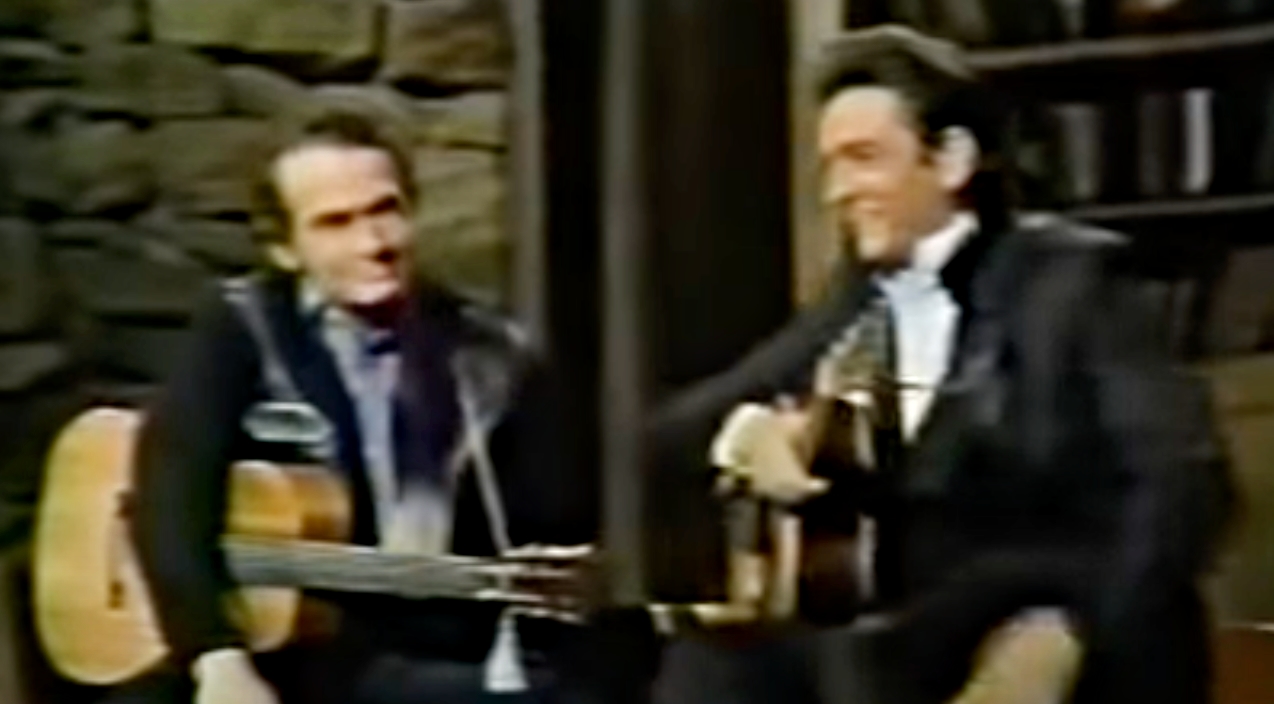Country music legend Merle Haggard has rightfully earned his permanent place amongst the country music greats, leaving behind a sensational legacy and perhaps some of the best music we could ask for. Despite Haggard’s unfortunate death in early 2016, Rolling Stone has recently released a long lost, unpublished interview with the icon that keeps his spirit alive and well.
Haggard uses his interview to dote on yet another royalty of country music, Johnny Cash. Upon being asked about the singer for “the 2008 documentary Johnny Cash at Folsom Prison, a film about the singer’s platinum album recorded 49 years ago on January 13th, 1968,” Haggard delves right into his memories to recall a visit from the legend while serving time at San Quinton’s State Prison in the late 1950s. “It was like seeing Muhammad Ali or something. He was on top of the world,” explained the late singer, who was then a starstruck inmate enjoying the unforgettable entertainment he and his fellow inmates had been deprived of.
Little did he know, the mere encounter behind bars would soon have its redemption, as Haggard and Cash went on to become great friends upon the rise of Haggard’s career. Reminiscing on their past jokes and banter, the singer admitted, “I criticized him one time for something he did, and he answered me, ‘Haggard, you have the ugliest face in country music.’ We had that kind of sense of humor back then.” However the friends weren’t all jokes as Haggard spoke fondly of Cash and his wife June Carter, admitting that the couple helped him in any way, shape, or form necessary.
Upon being asked what drew him to the “Ring Of Fire” singer, Haggard spoke of Cash’s harsh rebellion, similar to that of Elvis Presley’s, crediting that key trait for their music being profoundly accepted into the prison system. Cash performed on New Year’s Day at San Quinton in 1958, a day Haggard will never forget, marking the day he had succumbed to the musical power of Johnny Cash as he sat attentively in the audience. He recalled that Cash had lost his voice as he described,
“But his charismatic manners sold him to the convicts… I was prepared not to like him for some reason. When he didn’t have a voice and he was able to bring the people around, I understood the power of Johnny Cash. It was overwhelming.”
Haggard did his best to answer the lingering question as to why Cash ceased playing for prisoners for the remaining duration of his career. He explained that, as far as he could recall, a riot of some sort had erupted and it has scared Cash and Carter, instilling the logic that their safety inside those iron bars wasn’t guaranteed. “They didn’t go back after that. He didn’t realize that some of the people in there hated him just because of the way he was,” he said.
You can watch the two legends collaborating below.


